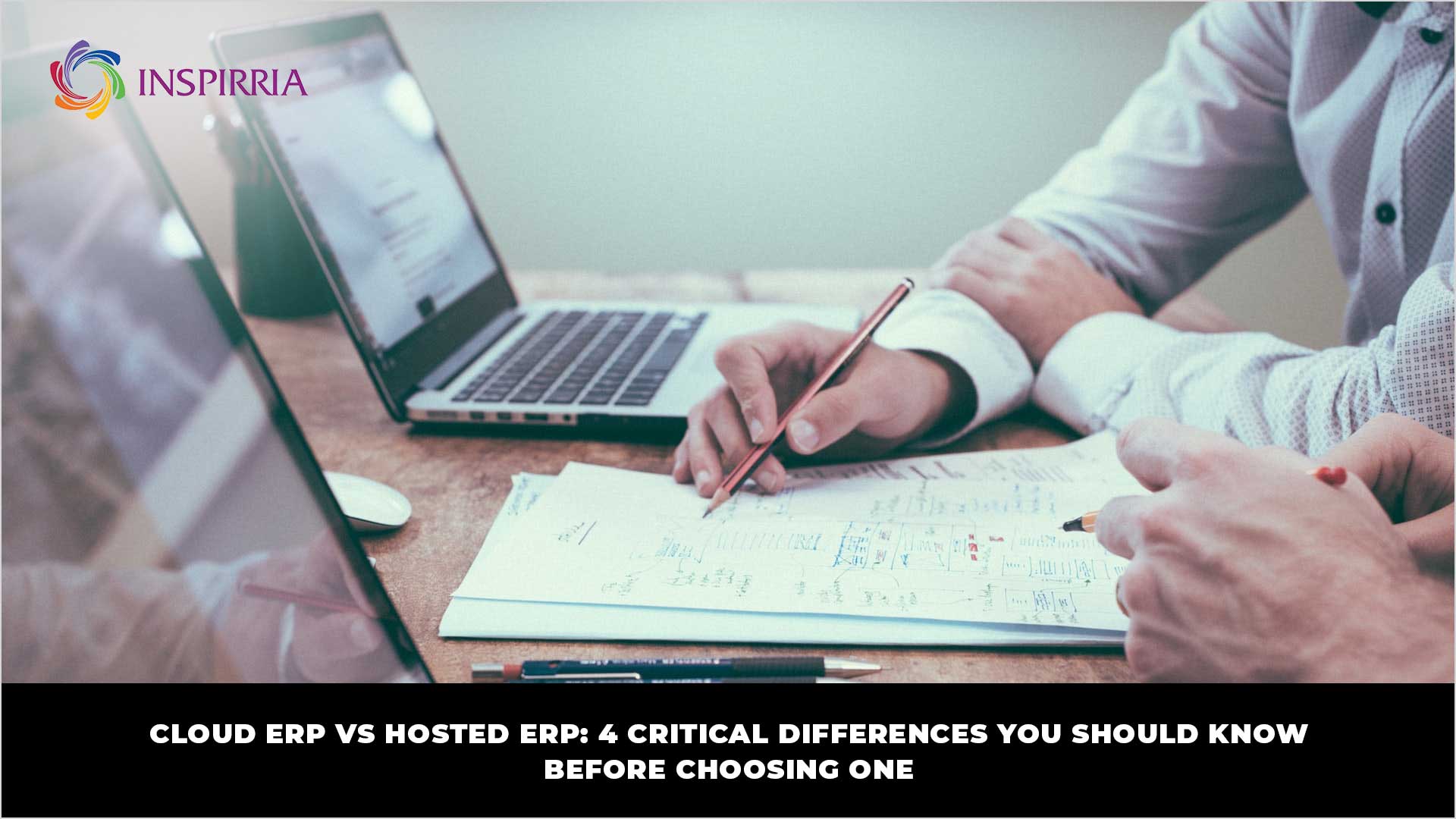Cloud ERP Vs Hosted ERP - 4 Critical Differences You Should Know Before Choosing One

ERP or Enterprise Resource Planning is sweeping over the business world on an unprecedented scale. The ERP software market is expected to breach $40 billion mark by the time 2020 ends, and this is indeed a big deal.
We all know why this is happening: ERP can empower a business to maximize their productivity, and streamline their business operations. And this is the reason more and more SMEs, SMBs, startups, and agencies are opting for ERP to derive more ROI from their technology investments.
However, there are various choices to make, especially when it comes to accessing ERP software.
Cloud vs Hosted ERP is a burning question right now, and depending on the usage and business needs, there are both pros and cons to both of these choices.
What Is Cloud ERP?
Cloud-based ERP is a business management suite, which is hosted on a Cloud, and accessed via web-based login for the end-user. Those who have access rights can log in from anywhere, via any device and gain full access of the data.
Oracle NetSuite is a good example of a Cloud-based ERP service provider.
What Is Hosted ERP?
In Hosted ERP, the business management suite is deployed in a remote server, which is accessed via a dedicated VPN. This remote server can be on-premise, that is established in the office of the user, or can be off-premise, that is established outside the office.
The access of hosted ERP is normally via VPN on a terminal (remote desktop) and not web-enabled. One of the biggest drawbacks of hosted ERP is that the ERP is physically deployed on a remote server, which can be a workstation and accessed via remote desktop/terminal.
Here are 4 critical differences you should know before choosing one:
Deployment: Deploying Cloud ERP is a breeze walk, since it’s based on Cloud, and accessed via web login. After the configurations are made, it’s just a matter of seconds before an end-user can access the entire ERP via Cloud. But deploying Hosted ERP is a complicated, time-taking process, which includes establishing a remote server, and establishing a VPN connectivity to access the ERP. It may take weeks and months to configure it properly.
Cost: Cloud ERP costs much less compared to Hosted ERP, and the reason is the database. In Cloud ERP, entire data and information are stored on the service provider’s cloud servers, and accessed via web login. But in Hosted ERP, you need to set up your own proprietary database, and then host it on a remote server, and make it accessible via VPN. There is a big, big difference in costing.
Customizations, Updates: Hosted ERP needs expert programmers and developers to make the changes, who need to visit the remote server, and spend days configuring them. But customizations and updates on Cloud ERP are easy, fast, and seamless. The end-user will not even come to know when the updates were implemented remotely via Cloud.
Optimization & Scalability: Scaling Hosted ERP is a time-consuming, and expensive affair. If the business dynamics and needs are altering at a fast face, then Hosted ERP can slow down the entire business due to its time-taking exercises for scaling the ERP. Cloud ERP on the other hand, is known for being flexible and scalable. The elasticity offered by Cloud is unprecedented, and one of the most popular features.
If you wish to know more about the differences between Hosted ERP and Cloud ERP and find out which ERP solution is optimal for your business, then contact with Inspirria - An award-winning Oracle NetSuite deployment partner right now!


